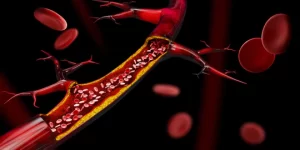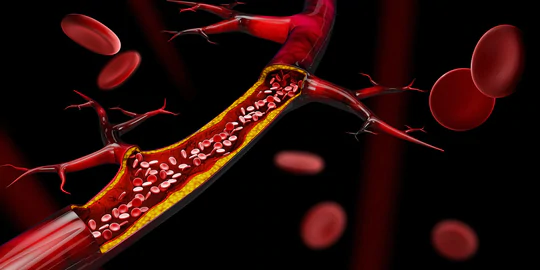NMN treatment improves brain associated blood vessel cell survival and protects against harmful stress in metabolic disorders like diabetes.
Diabetes cases continue to rise sharply worldwide. These patients are more prone to stroke with a 50% greater risk of hemorrhagic stroke—blood vessels rupturing in the brain. This is thought to be caused by the dysfunction of brain-associated blood vessel cells—endothelial cells—during diabetes development. Although scientists understand that this breakdown is caused by inflammation and cellular stress elicited by harmful oxygen ions (oxidative stress), how to treat this has remained elusive.
Luo and colleagues published an article in FEBS Open Bio providing evidence that supplementation with nicotinamide mononucleotide (NMN) protects mouse brain-associated endothelial cells from oxidative stress and functional decline. The study indicates that NMN supplementation to mouse endothelial cells also reduced cell death and improved the function of the cell’s powerhouse—the mitochondria. These findings could translate to the prevention of brain endothelial cell breakdown and ultimately hemorrhagic stroke in diabetes patients.
NMN Improves Brain Blood Vessel Cell Viability After Oxidative Stress
In their experiments, the team found that NMN protected mouse endothelial cells cultured in laboratory dishes treated with the oxidative-stress inducing molecule hydrogen peroxide. Treatment for 12, 24, and 48 hours with hydrogen peroxide resulted in progressive reductions in cell survival. Even more, additionally increasing NMN supplementation concentrations (300 to 500 µM) facilitated better cell proliferation rates. These results indicate that NMN can reverse the detrimental effects of oxidative stress on endothelial cells of the brain that arise from metabolic disorders like diabetes.
NMN Enhances Mitochondrial Health After Oxidative Stress
To find out whether NMN-induced enhancements in cell survival came from improved mitochondrial health, the scientists examined the structural integrity of the mitochondrial membrane. Following the harmful hydrogen peroxide treatment, they found greater permeability of the mitochondrial membrane, indicative of reduced structural integrity. Adding NMN to the hydrogen peroxide treatment restored the mitochondrial membrane potential indicative of restored mitochondrial health. These results suggested that NMN increases cell survival under oxidative stress by improving mitochondrial membrane integrity and health.
Elucidating NMN’s Effects on Cellular Pathways
To elucidate how NMN rescues cells from the toxic effects of oxidative stress, the researchers examined levels of proteins NF-ĸB and NAMPT since their levels fluctuate with inflammation and disease. NF- ĸB is a protein complex that orchestrates immune responses along with cellular responses to oxidative stress, while NAMPT is an enzyme in cells that synthesizes NMN from nicotinamide. Luo and colleagues found after hydrogen peroxide treatment that NMN increased NAMPT levels and decreased NF-ĸB levels. The changes in NAMPT and NF-ĸB levels indicated that NMN treatment improved NAD+ biosynthesis and reduced inflammation, respectively. This insight can help researchers understand the cellular mechanisms by which NMN has its effects to make better therapeutics for targeting these cellular pathways.
“Taken together, our results demonstrate that NMN is capable of protecting H2O2-injured bEnd.3 cells from apoptosis through the regulation of the enzyme NAMPT and the NF- ĸB p65 signaling pathway,” stated the authors in their publication in reference to the effects of NMN on the hydrogen peroxide treatment of brain endothelial cells.
Future Directions for Brain Blood Vessel Research
The research points to targets for improving brain blood vessel integrity in response to oxidative stress from metabolic disorders like diabetes. If these findings translate to humans, NMN supplementation may improve brain blood vessel function in people with metabolic disorders.
Full Text Sources
